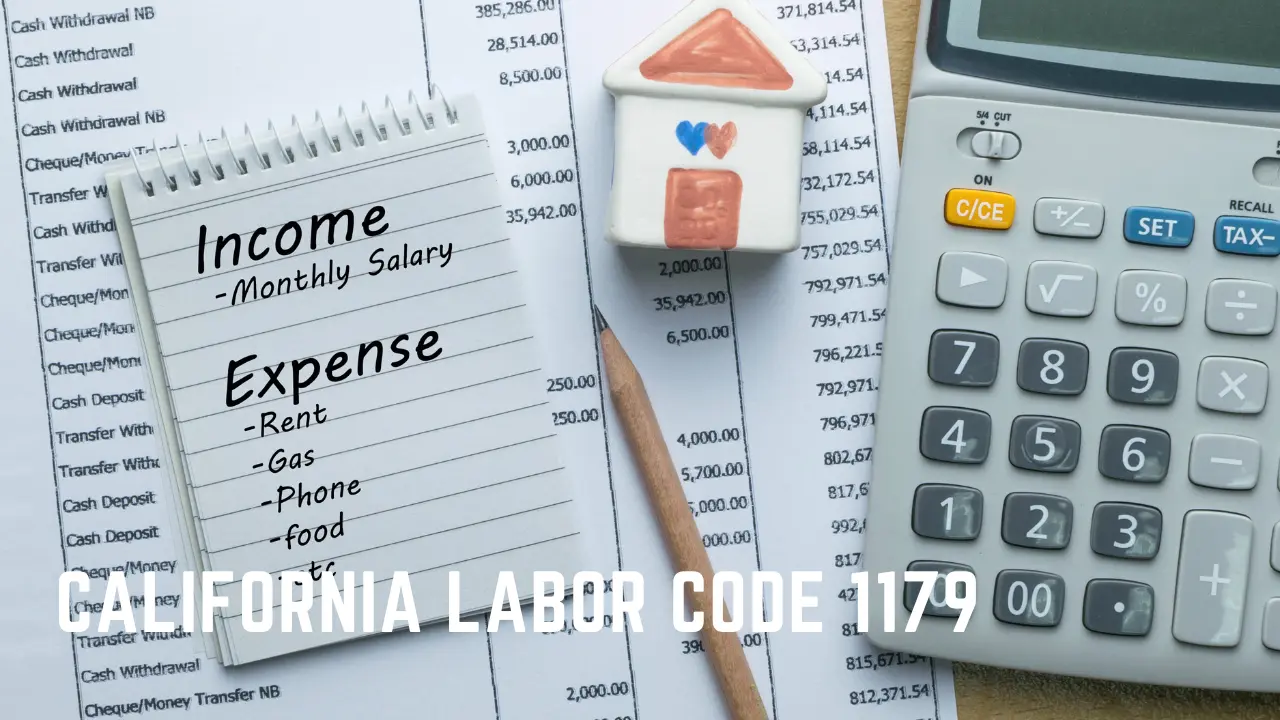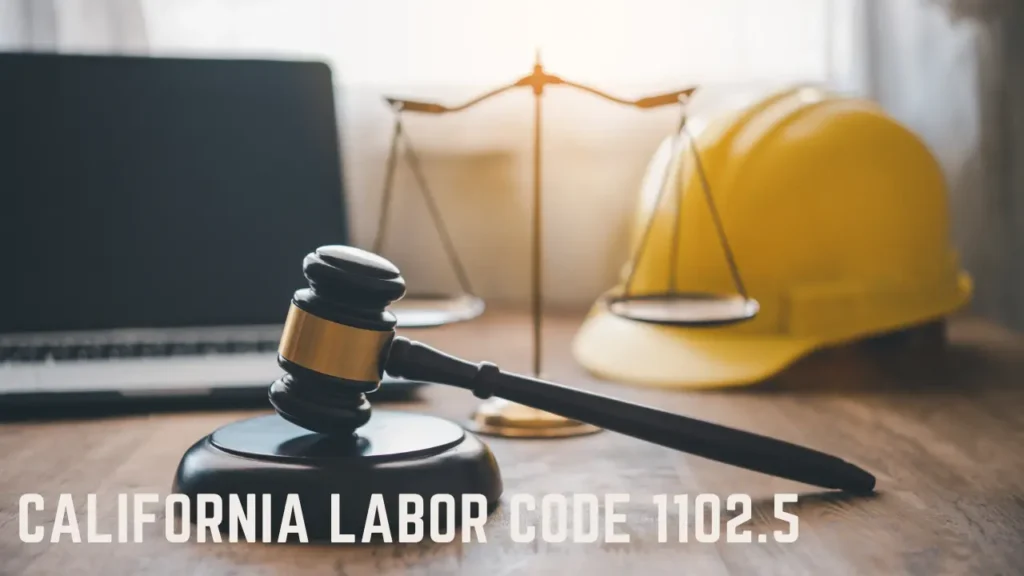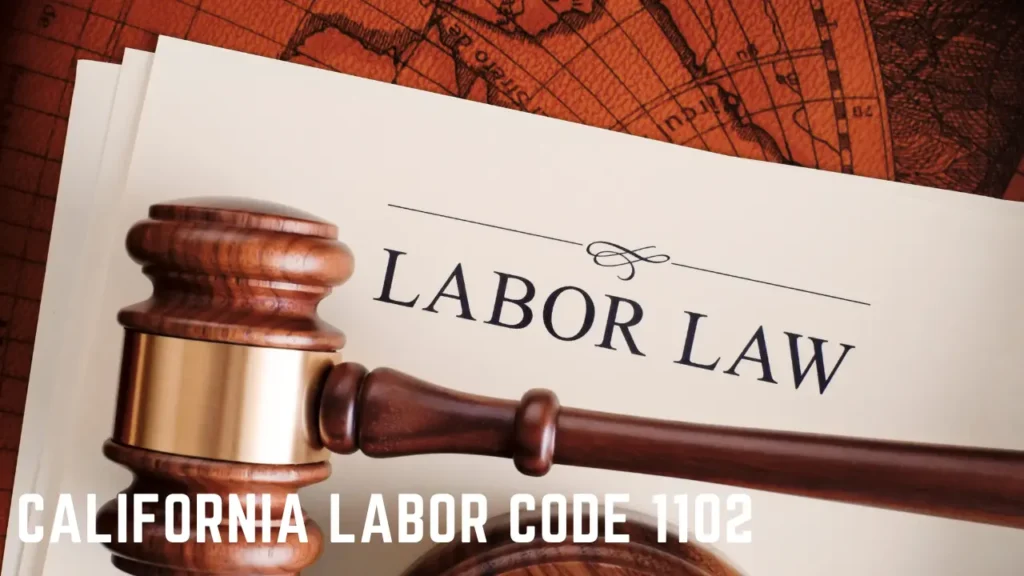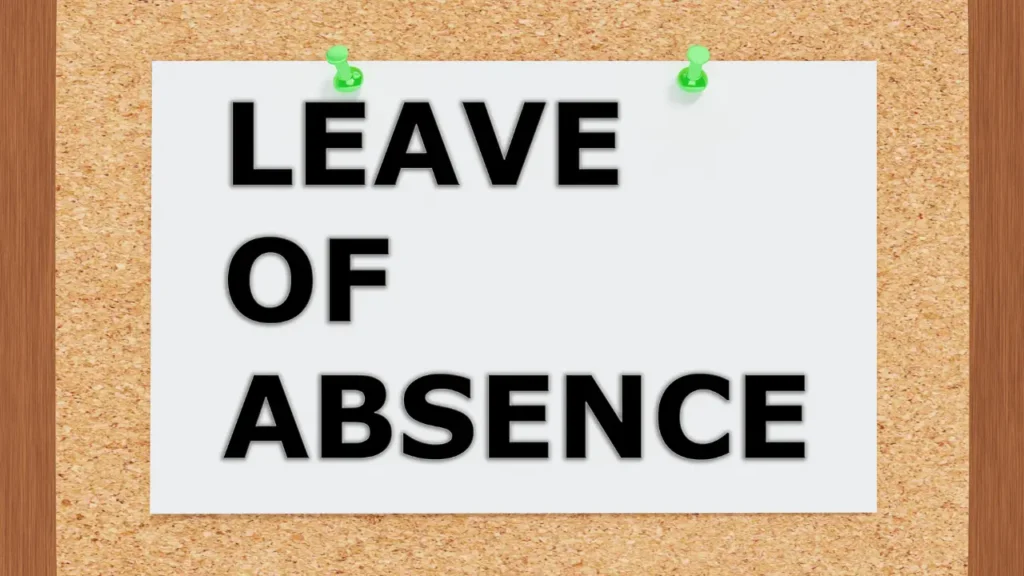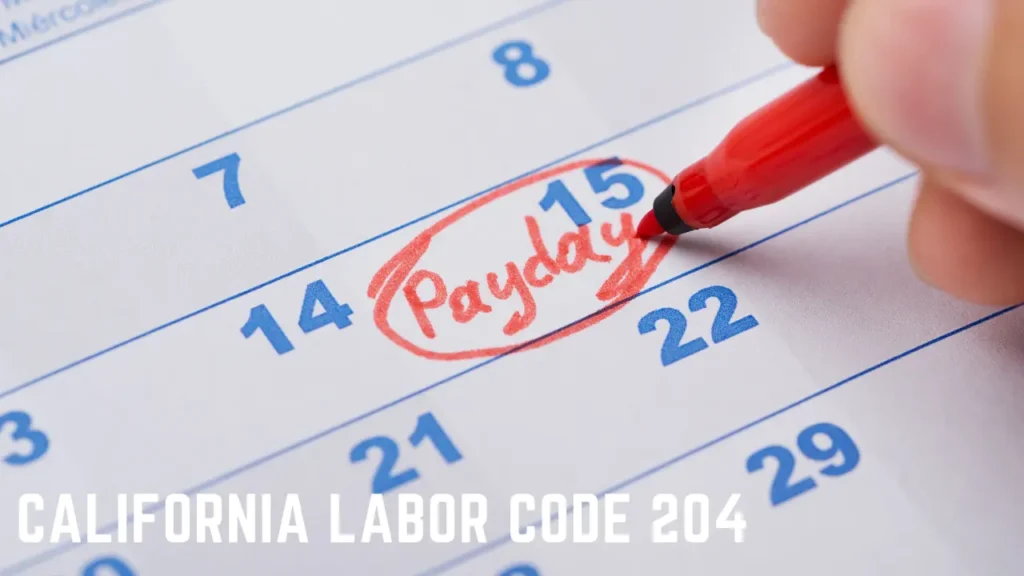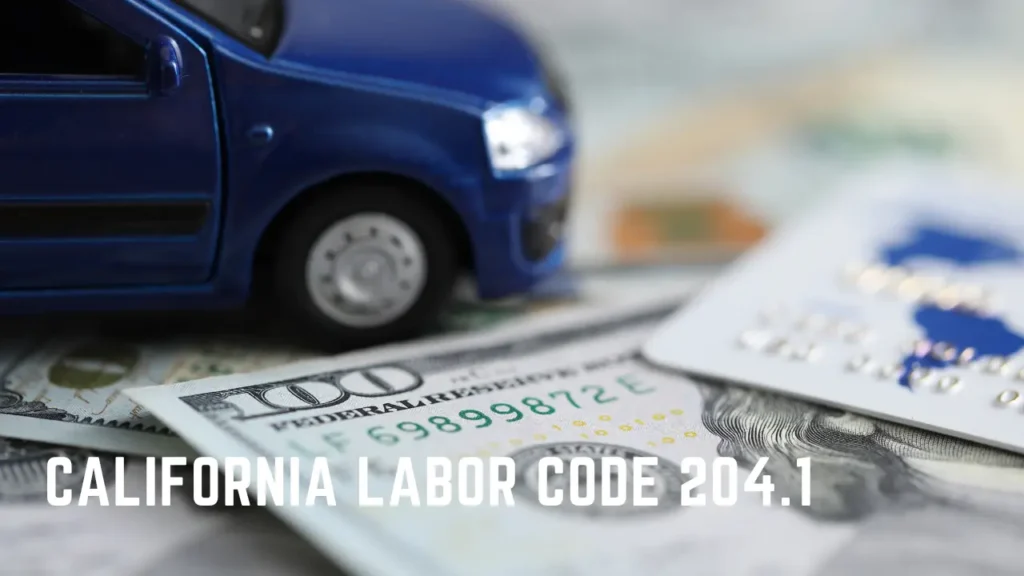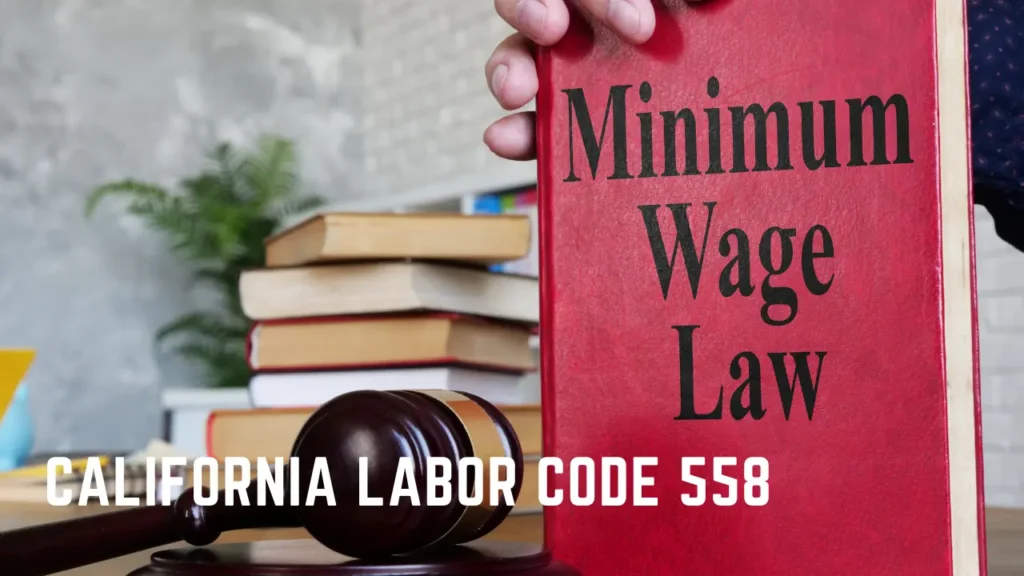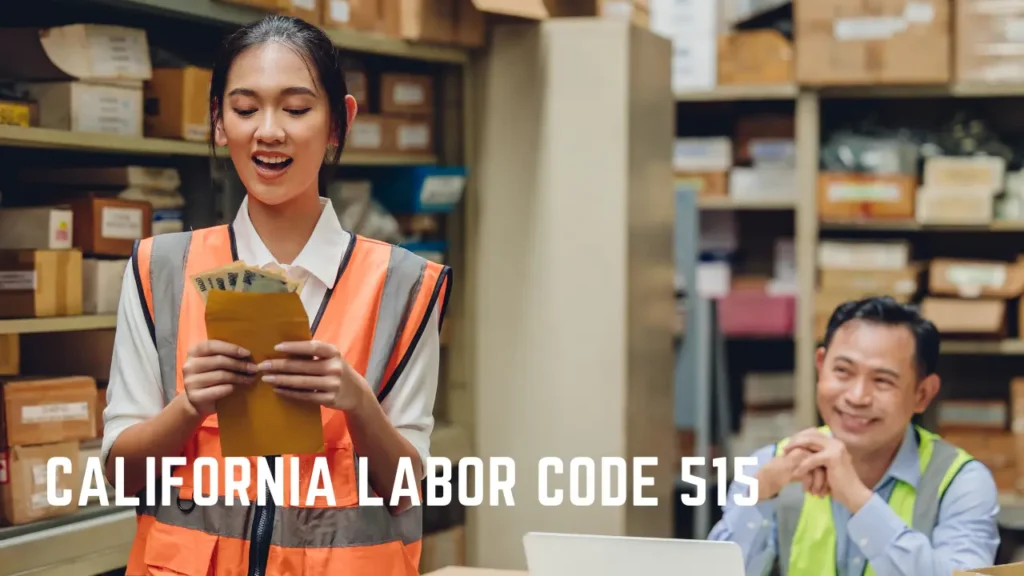Table of Contents
ToggleThese boards, critical to ensuring fair wages and working conditions, require a thorough understanding of those who partake in or are affected by their proceedings. Given the inactive status of the Industrial Welfare Commission (IWC), the Division of Labor Standards Enforcement (DLSE) now shoulders the responsibility for enforcing wage orders.
This shift necessitates a fresh examination of the implications of Labor Code 1179. Therefore, a comprehensive exploration of its intricacies will yield valuable insights for stakeholders in this space.
Understanding California Labor Code 1179
An in-depth analysis of California Labor Code 1179 reveals that it serves as a critical legal provision, specifically aimed at regulating and providing the daily per diem and travel expenses to members of the California wage board, a body assigned with the task of scrutinizing the sufficiency of wages and working conditions within particular trades.
This statutory provision ensures that board members are adequately compensated for their services, thereby encouraging their full commitment to the crucial task of labor regulation. Furthermore, it establishes transparency and fairness in the process, as it standardizes the remuneration procedures and eliminates potential discrepancies.
The Role of Wage Boards
In the framework of labor regulation, wage boards play an indispensable role, predominantly tasked with the investigation of the adequacy of wages and working conditions within specified trades, thereby fostering an equitable working environment. They serve as a crucial intermediary, ensuring that workers receive fair compensation in line with industry standards and cost of living.
Moreover, pursuant to California Labor Code 1179, wage boards are compensated for their essential duties, receiving travel expenses and a daily stipend. They are required to conduct public hearings, giving stakeholders a voice in the process. Their recommendations, however, require a considerable two-thirds majority to influence Industrial Welfare Commission rulings, underscoring the rigorous, democratic nature of the wage-setting process.
Investigation Process of Wage Boards
Building upon the fundamental role of wage boards, the process by which these entities conduct their investigations warrants meticulous examination, particularly given the implications for wage policy and workers’ rights.
The investigation process follows a structured approach:
- Initial assessment: This involves a thorough review of wage conditions within a specific industry.
- Public hearing: The California labor code mandates at least one public hearing, allowing for stakeholder input.
- Recommendation: Post-investigation, the board submits a recommendation to the Industrial Welfare Commission (IWC), requiring a two-thirds majority for adoption.
This process ensures that industry-specific wage issues are scrutinized, facilitating the creation of equitable wage policies. However, the effectiveness of this system hinges on the regularity and depth of investigations, as well as the transparency of the process.
Adoption of Wage Board Recommendations
Upon conclusion of their investigation and public hearing, wage boards formulate recommendations which, as mandated by California Labor Code 1179, require a two-thirds majority approval from the Industrial Welfare Commission (IWC) for their adoption and subsequent enforcement. This legal threshold ensures that only well-considered and broadly supported recommendations ascend to enforceable mandates.
This process is fundamental to the regulatory architecture, enforcing adequate wages and working conditions. However, with the IWC currently inactive, the Division of Labor Standards Enforcement (DLSE) assumes the role of enforcement, maintaining the integrity of wage orders. The rigorous adoption process underscores the commitment to worker protection, even as it reveals the complexities and challenges inherent in the operation of labor law.
Explanation of 8 CCR 11535 Rule
While understanding the process of adoption of wage board recommendations provides context, it’s equally important to elucidate the implications of the rule 8 CCR 11535, another critical provision related to wage boards. This rule clarifies the procedures and criteria for wage board appointments, more specifically, the selection of its members.
The rule stipulates:
- Representatives: The board should consist of an equal number of employer and employee representatives. Impartiality is key to ensuring fairness.
- Qualifications: Members must have a demonstrable connection to the sector under review. Experience and knowledge are fundamental.
- Terms: The duration of the member’s service is defined, promoting continuity and stability in decision-making processes.
These provisions ensure the board’s integrity, impartiality, and effectiveness in protecting workers’ rights.
Overview of California Labor Code 1178.5
Shifting focus to another pivotal legal provision, California Labor Code 1178.5 sets forth important regulations concerning the limitation of actions and penalties in relation to wage board violations.
This statute imposes a strict window within which aggrieved workers must file complaints, going beyond mere wage and hour violations to include unjust working conditions. It stipulates that actions must be commenced within three years from the occurrence of the violation.
Additionally, it outlines stringent penalties for offending employers, including fines and, in severe cases, imprisonment. A close reading of this provision underscores its importance in safeguarding workers’ rights and ensuring employer accountability.
It is vital for both employees and employers to understand and abide by this law to avert legal complications.
IWC Status and Enforcement
Building on the understanding of individual labor codes, we now turn our attention to the status and enforcement of the Industrial Welfare Commission (IWC), a crucial entity in the context of California labor law. Though currently inactive, the enforcement of IWC’s wage orders falls under the purview of the Division of Labor Standards Enforcement (DLSE).
- IWC Status:
- Inactive since 2004
- Responsibilities transferred to DLSE
- IWC Enforcement:
- DLSE enforces IWC’s wage orders
- Wage orders remain in effect until legislative action
- Legal Implications:
- Employers must comply with wage orders
- Non-compliance can lead to legal action
The IWC’s suspended status does not diminish the significance of its wage orders. Employers’ adherence to these remains a critical aspect of California labor law.
Legal Resources for Wage Disputes
Given the potential complexity of wage disputes, a wide array of legal resources is available, including experienced California labor and employment attorneys, to aid workers in navigating these challenges.
Notably, these professionals are well-versed in relevant California labor laws, including Labor Code 1179, and have a robust understanding of wage board procedures. They offer legal representation, strategic counsel, and negotiation skills to ensure that workers’ rights are protected and that employers comply with the state’s labor standards.
Legal resources also encompass labor rights organizations and state agencies like the Department of Labor Standards Enforcement (DLSE). These bodies can provide guidance, enforcement of wage orders, and even mediation services in cases of disputes.
Given the intricacies of wage laws, these resources are invaluable in resolving wage-related disputes.
Jonny Law Services
While legal resources and state agencies provide substantial support in wage disputes, a pivotal role is played by legal firms such as Jonny Law, which offers a spectrum of services specifically tailored to protect and uphold workers’ rights.
The Jonny Law provides:
- Legal representation: They offer astute and rigorous legal representation in wage and hour disputes, ensuring that workers’ rights are protected.
- Consultation: They provide insights into the complexities of wage laws and help their clients understand their rights.
- Litigation: Should the need arise, they undertake litigation against employers who violate wage laws.
- Advocacy: They advocate for workers, lobbying for better laws and regulations to protect workers’ rights.
- Public education: They actively educate the public about wage laws and workers’ rights.
- Policy influence: They work to influence policy decisions to better protect workers.
- Support: They provide support beyond the courtroom, assisting workers in understanding their rights and navigating the complexities of wage disputes.
Communication With Jonny Law
Establishing communication with Jonny Law is a straightforward process, designed to ensure prompt response and efficient handling of wage and hour dispute queries. Prospective clients can engage with the firm’s services through a simple online form. This immediate means of contact enables quick assistance, vital in time-sensitive legal matters.
The firm pledges to respond within a five-minute window, demonstrating a commitment to efficiency and client urgency. Communication also extends to the submission of relevant documents, further expediting case handling. By facilitating such a streamlined communication system, Jonny Law, ensures an efficient process for resolving disputes related to wage board expenses, thereby protecting the rights of employees under California Labor Code 1179.
Jonny Law Policies
In light of the firm’s commitment to efficient communication and client urgency, Jonny Law also upholds a strong set of policies designed to protect both the rights of workers and the integrity of its legal services.
The firm’s policy framework includes:
- Commitment to Client Service: The firm prioritizes prompt responses to inquiries, aiming to reply within a five-minute window. They offer clear and professional communication, ensuring clients are informed at every stage of their case.
- Protection of Workers’ Rights: Jonny Law, is a steadfast advocate for workers, fighting against violations and providing legal support.
- Integrity of Legal Services: This includes adherence to strict ethical guidelines and maintaining client confidentiality, ensuring that all actions taken align with the highest standards of legal practice.
Conclusion
In conclusion, California Labor Code 1179 and the 8 CCR 11535 rule play a significant role in defining wage board expenses and ensuring fair treatment of members.
The Jonny Law, provides essential legal resources for those dealing with wage disputes, reinforcing the importance of understanding these legislations.
The intricate nature of these laws highlights the necessity for effective legal assistance in navigating the complexities of wage board laws and protections.

